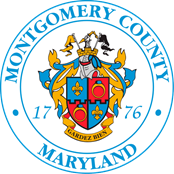The new location for this page is
https://www.montgomerycountymd.gov/business/

Agricultural Business Starter Kit
Use this kit as a general overview of what would be required to open an agricultural/farming business in the Agricultural Reserve.
Having a business plan is essential to any business. To be sustainable and profitable a farm operation must have a clear understanding of production, marketing, finances and labor. The University of Maryland Extension has a farm business planning workbook and other business planning resources to help new farmers. The USDA also provides business planning and other resources for new farmers.
If you don’t already have a name for your business, now is the time to think about one! Conduct a Business Entity Search through Maryland Business Express to determine if your business name is already in use.
Agricultural businesses should consider registering with the Farm Service Agency (FSA). Though this is not a requirement, if you register, you will receive a “Farm Number” and when federal programs become available that could be useful to you, you will already be in the FSA system and ready to apply. To register, contact the local FSA office at 301-2504737 or via email at [email protected]
In addition to the local business regulations and laws that apply to all businesses, it is important to research the regulatory environment that will apply to your specific type of business.
You are encouraged to thoroughly review the regulatory information to understand what will be required for your business.
Agricultural businesses should review the Montgomery County Zoning Ordinance Article 59 Section 3.2
One of the first decisions for an agricultural business is whether to purchase or lease land.
Leasing Land
-
You can locate land available for lease through landlink, a program offered by Montgomery Countryside Alliance that seeks to "link” beginner and experienced farmers with available land and farms within Montgomery County.
-
The Center for Agriculture and Food Systems at Vermont Law School has developed a “ Farm Lease Builder” to guide you through important common issues in farmland leases and help you create a roadmap for your landlord/tenant relationship.
- The University of Maryland Agriculture Law Education Initiative also has some sample lease agreements.
-
Purchasing Land in the Montgomery County Agricultural Reserve
- What Zoning applies to the property?
- Open the Montgomery County Zoning map .
- Enter the address of the property you are interested in purchasing in the Address/Place Name Search box in the upper right-hand corner or use zooming tools on upper left-hand corner of the map to navigate to the property.
- Click on the property-of-interest. A “ Property Info” box will appear on the left-hand side of the screen. The second section of this box is entitled, “ Zoning Info”. The Zone information is contained in this box. Click the link to the right of Zone: in the Zoning Info section for detailed information.
- What uses are allowed on this property?
- Find the zoning for your property, described above.
- Open the Montgomery County Zoning Ordinance (Chapter 59)
- If necessary:
- Click the "arrow" before the Montgomery County Zoning Ordinance
- Click the "arrow" before Chapter 59
- Click the “arrow” before “Article 59-3. Uses and Use Standards”
- Expand (click the “arrow”) befpre “ Division 3.1. Use Table”
- Click on “ Section 3.1.6. Use Table ”. Find the zone of your property in the horizontal zone list across the top of the table, and the corresponding cell for the agricultural use you are investigating.
- If the cell contains “ P”, the use is permitted in the zone;
- if the cell contains an “ L”, the use is permitted if it meets the limited use standards in Division 3.2 through Division 3.7;
- if the cell contains a “ C”, it is a Conditional Use and the use must meet the conditional use standards in Division 3.2 through Division 3.7 and requires approval by the Hearing Examiner under Section 7.3.1;
- if the cell is blank, the use is not permitted in the zone.
- Research additional information related to the use you are investigating by clicking on the link in the “ Definitions and Standards” column for the Use or Use Group in the table, or by choosing a corresponding section from “ Division 3.2. Agricultural Uses” on the menu of the left-hand side of the screen.
Because the zoning can be confusing and there may be other factors at play with the potential piece of property you are interested in, you are encouraged to contact the Montgomery County Office of Agriculture and request an appointment to speak with Mike Scheffel who can answer any questions you may have and provide additional information about the specific property.
Regardless of whether you are planning to be a food producer, grain farmer, flower farmer or raise livestock, you will need to ensure that the appropriate infrastructure is in place for your farming operation.
- Source of water and electricity
- Appropriate Fencing for your operation (i.e. deer fencing for food production)
- Specific tools and/or equipment relative to your farming operation
- Shelter/equipment storage as applicable
There may be resources available to cost share some of these infrastructure needs, visit the Office of Agriculture Programs and Services web page to determine if your operation is eligible for assistance.
The Agriculture Reserve is home to a very diverse array of farming operations. Depending on the nature of your agricultural business, there may be other considerations that require awareness and compliance.
-
Table Food Farming
-
Pesticide Applicator’s License: If you apply pesticides to your farm operation, you may need a private applicator’s license: Pesticide Applicator Certification and Business Licensing Requirements.
-
-
Livestock
-
Nutrient Management Plan: If you have 8 animal units (8,000 lbs) on site or gross $2500 in agricultural sales, you will need a Nutrient Management Plan. Please contact the University of Maryland Extension Agricultural Nutrient Management Program for more information or call 301-590-2840.
-
MDA licenses for registering flocks of chickens and egg inspection requirements.
-
MDA Poultry and Rabbit program and slaughter processing requirements.
-
USDA Inspected Livestock Processing Facilities in Maryland
-
-
Agritourism
-
Agricultural education and tourism activities are allowed as accessory uses to farming as defined in the Montgomery County Code Section 3.2.6(F).
-
Maryland House Bill 805 – added Montgomery County to the list list of counties that exempt agricultural buildings used for agritourism from the Maryland Building Performance Standards; and exempting a building used for agritourism in Montgomery County from a certain building permit requirement under certain circumstances
-
The Office of Agriculture provides free technical assistance to ensure you have a thorough understanding of the agritourism requirements. Examples of agritourism include seasonal festivals, pick-your-own, farm alcohol production and other agriculturally related activities.
-
Agricultural products can be marketed in Montgomery County at various outlets, including on-farm markets and farmers markets. Each outlet has its own set of requirements.
-
Farmers Markets: Each farmers market is run independently and has its own administrative processes and oversight authority.
-
To sell products at a farmers market, contact the Market Master for the specific markets you are interested in
-
To sell prepared foods at a farmers market, you must obtain a license from the Montgomery County Department of Health and Human Services.
-
On-farm markets:
-
On Farm markets are allowed as a limited use under the zoning code. However, if you want to sell your products at an on-farm market, you may need to obtain permits from the Department of Permitting Services (DPS) for a market building to which the public has access and a license from the Montgomery County Department of Health and Human Services.
-
-
Sales in the Public Right of Way: If you are interested in selling agricultural products in the public right-of-way, become a Certified Agricultural Producer through the Department of Permitting Services.
